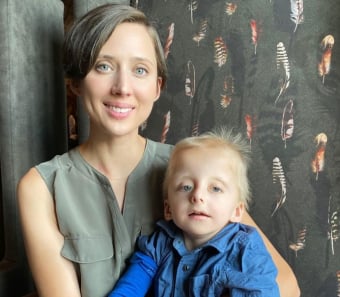The CytoScanTM Xon microarray is a powerful application with substantially increased coverage of disease-associated genes. The Applied Biosystems platform includes the following features:
6.85 million probes empirically selected for whole-genome coverage including:
• 6.5 million copy number probes
• 300,000 SNP probes for LOH/AOH analysis as well as duo/trio assessment and sample tracking
• 95% sensitivity for the detection of exon-level CNVs in Level 1 genes
• Total number of genes with coverage: 25,980
• Full coverage: 21,844
• Partial coverage: 4,136
• Exome genes for medical research (including cancer genes): 7,003
• Exon-level CNV detection with an average of 15 probes per call
26 days
81479
$1,200
Level 1 - 7003 genes •Genes with the highest level of evidence for clinical relevance - developmental delay, epilepsy, ASD, XLID, metabolic disorders, hereditary cancers, OMIM morbid genes Level 2 - 3813 genes •ClinVar genes not covered in level 1 Level 3 - 5817 genes •Other OMIM genes Level 4 - 9347 genes •Other RefSeq, UCSC, and Ensembl genes
•This platform may detect small single or multiple exon deletions/duplications that are missed by a whole genome array. •Specific suspected disorder for the levels shown above where sequencing did not identify a mutation, or only identified one mutation for an autosomal recessive disorder. •This array also complements all of the GGC Next Generation Sequencing Panels •Whole genome analysis on the Xon array platform is not currently available.
5 to 7 ml of peripheral blood collected in an EDTA (lavender top) tube is the preferred specimen type. The minimal blood needed for reliable DNA isolation is 3 ml. Additional specimen types include: saliva, extracted DNA, tissue, chorionic villus sampling, and amniotic fluid. Follow collection and transport guidelines specific for each tissue type. Studies requested should be indicated at the time of sample submission. Prenatal testing will be considered on a case-by-case basis as the lab would like to ensure there is an appropriate indication before accepting a prenatal specimen for testing. See prenatal testing information below for additional information.
Will vary depending on sample type: Blood: Specimen should be kept at room temperature; do not freeze or refrigerate. Specimen should be sent by courier or overnight mail to arrive at the laboratory the next day. Amniotic Fluid and CVS: Specimen should be kept at room temperature; do not freeze or refrigerate. Specimen should be sent by courier or overnight mail to arrive at the laboratory the next day. Solid Tissue (such as skin biopsy, products of conception, or fetal tissue): Specimen should be kept at room temperature if it will be transported immediately. If specimen is not being immediately transported to the laboratory, it may be refrigerated; do not freeze. Specimen should be sent by courier or overnight mail to arrive at the laboratory the next day.
Considered on a case-by-case basis. These indications may include the following: abnormal ultrasound findings; abnormal NIPT result; family history with a known/identified genetic etiology; heterozygous sequence variant in a recessive gene that matches the prenatal phenotype with no second alteration identified. Additional fees for cell culture and maternal cell contamination may apply. Maternal cell contamination studies are required for most prenatal testing. Contact the laboratory prior to sending a prenatal specimen.
Call our laboratory at 1-800-473-9411 or contact one of our Laboratory Genetic Counselors for assistance.
Robin Fletcher, MS, CGC
Falecia Thomas, MS, CGC
Alex Finley, MS, CGC
